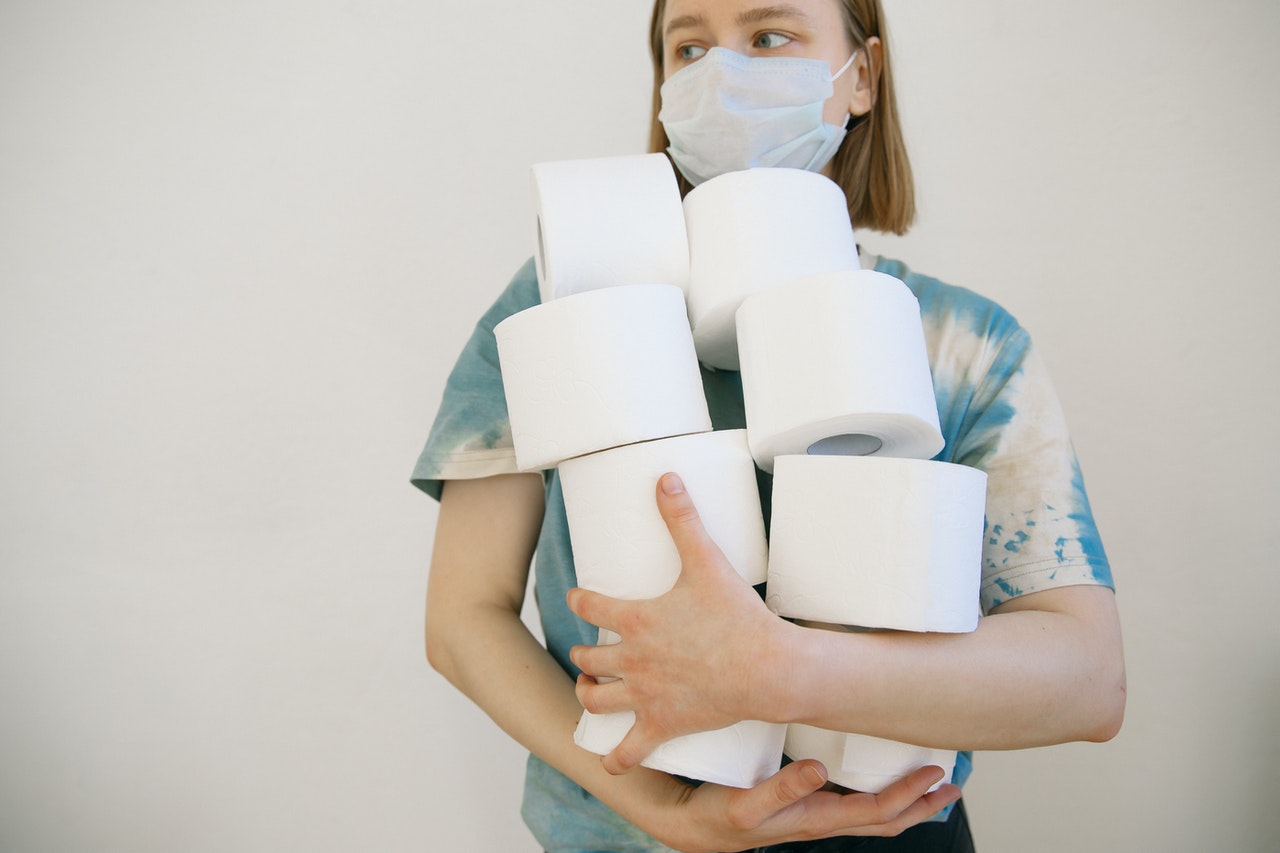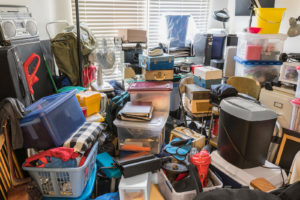Do Americans suffer from Hoarding disorder as a result of the pandemic?

The WSJ today (April 14, 2021) featured an article in the Business section, “Americans Have Too Much Toilet Paper…”, noting that some people have stocked up so much because of the shortages during the beginning months of the COVID-19 outbreak, that they do not need anymore for quite some time, resulting in slowing sales.
Does that mean that the pandemic has turned us into a nation of hoarders? Hoarding can be viewed as a continuum, with acute episode(s) on one end and more severe, unrelenting behaviors on the other end, which is more indicative of the DSM-5 diagnosis of hoarding disorder.
When is it too much stuff?
Stressors (e.g. divorce, a loss, trauma, COVID-19 uncertainty) can exacerbate hoarding tendencies that pre-dated the stress. When is it too much stuff? Usually, it is the family member or friend who can identify the problem before the person doing the hoarding can acknowledge it. You may also be familiar with the t.v. shows that feature hoarding that has snowballed into unsafe living conditions. In those cases, a neighbor, landlord, repairman, or town official may be the one to “blow the whistle” on the hoarding behavior because it has started to have an impact on the neighbors, or there is genuine concern for the well-being of the resident. The good news is that with the availability of Telepsych since the pandemic started, it is easier to find competent behavioral health specialists who understand hoarding behavior and how to best intervene. Tip: it is usually counter-productive to sneak around and throw out belongings of the person who is hoarding, even if they seem to be worthless to you. Why? It undermines the trust the hoarder has with you, and probably with others who may try to be helpful in the future. For example, sometimes hoarders recall that their parent threw out all their stuffed animals while they were at school, and they never recovered from that mistrust. One’s belongings can provide comfort and a cocoon of security.

I receive calls from adult children of hoarders who want help for their elderly parents who are stuck in the trap of being unable to discard or recycle some of their belongings. Sometimes their parents live far from my office and it is not practical to make the necessary home visits, once the parents are agreeable to the process of psychotherapy or counseling. Now, we can work via video-conferencing, even when there is significant distance involved. In fact, Dr. Faier-Routman is part of PsyPact which permits her to work via Telepsych in about 15 states that have legislated reciprocity of licensure across state lines.
What about the so-called “hoarders on the other end of the continuum, i.e. those who may have responded to the shortages last March by stocking up? The truly mild cases have probably realized they have enough, the stores have re-stocked, and they can cut-down on purchasing. The moderate cases may still be stocking up, especially if they have space, “just in case.” The isolation brought about by COVID-19 can contribute to depression, and some individuals may try to “feel good” by engaging in excessive internet shopping, which may include shoes, clothes, etc., in addition to tissues and paper towels.
When over-acquiring is a problem, ask yourself: Do I need it?
Do I already have similar items?
Do I have room for it, or a specific place in mind for it?
Can I afford it?
Hoarding can be the “tip of the iceberg” that masks other problems, such as grief, anxiety, and difficulties such as attention deficit disorder or memory issues that may impair sorting, filing, discarding, and the decisions that are embedded in those processes.
